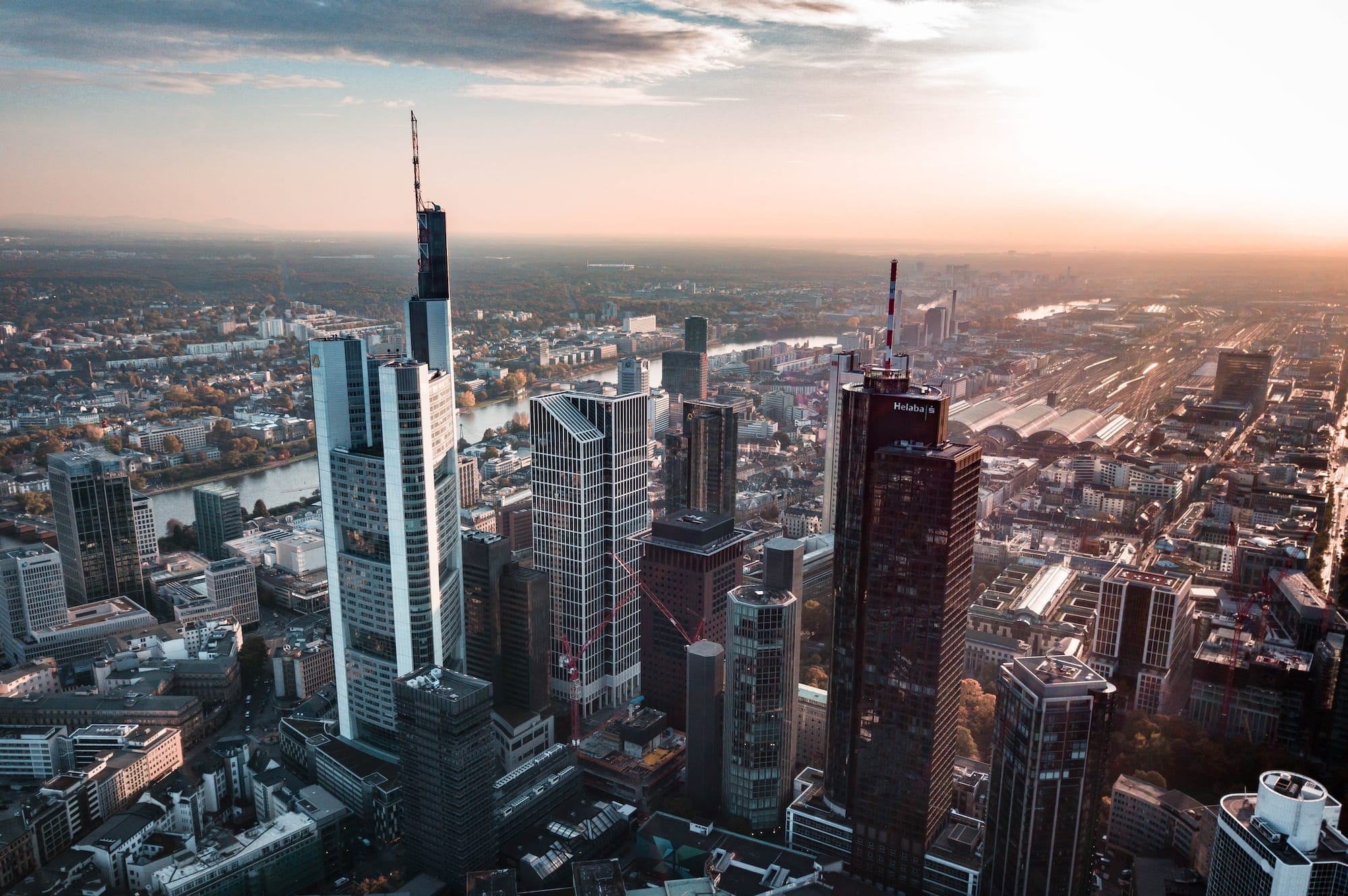Crossing a river, at that time more like a bunch of meandering streams, slows you down, esp. if you are burdened with wares. It also intersects with the other trade route, the Main river itself. Makes sense to offer a resting place nearby, where travelers can lodge … and trade.
Traders traveling and resting need protection, as do the other, stationary members of the tribe. It makes sense to bundle together a few inns, the landing place for ships, surrounding buildings and fortify the perimeter. It might even invite the traders to stay a bit longer.
Traders chatting among themselves soon realize they are missing out on many lucrative deals because they are not in town at the same time. Someone has the ingenious idea to bring all the traders together at the same time, and spread the word about an upcoming trade fair.
More trade requires more protection, so the simple perimeter fence needs to be replaced by a sturdy stone wall. This costs money, and the nearby lord – power, protection and money are never far apart – offers to help out, in return for a toll payment levied on merchants.
Trade requires trust, and the strongest trust network along European trade routes is held by Jews, a tribe prevented from tending to many other professions. But trust within plus wealth sows distrust without. Tempers flare. Repeatedly.
The Lord, dependent on toll and tax income but mindful of popular anger, vacillates between offering and withdrawing protection. Eventually the Jews are relegated to their own quarter, the Judengasse. A perimeter within a perimeter.
A trade network connecting the Hanse with the rich cities of the Lombards brings in coins and bank letters of many denominations. This slows down trade and leads to conflict. Someone, probably a trader, has the ingenious idea to accept the exchange rate risk – for a fee.
Wealth bestows power, and the merchants and dignitaries, resentful of local fiefs meddling and extorting rents, successfully sue to become an Imperial Free City, subordinate to the German Kaiser alone.
Wealth also bestows a certain kind of opportunistic wisdom, and Frankfurt wisely decides to remain neutral during the Thirty Years’ War. This mercantile wisdom also helps Frankfurt become seat of the Bundestag after the fall of the Holy Roman Empire.
But wealth cannot help Frankfurt getting subsumed into the emerging global power of Prussia, with its belligerent and upstart capital of Berlin, in the remote marches of Brandenburg. For a while Frankfurt plays second fiddle.
After Prussia and Berlin tripped over their own belligerence – twice over – Frankfurt also played second fiddle in the selection of the temporary capital of West Germany. Instead it focuses on what it does best: being the financial and transportation hub of the divided country.
After the end of the cold war, with Berlin being reinstated as the political hub of reunified Germany, Frankfurt retains those two important roles — at least until Berliners learn how to build an airport.
Geography matters. (Economic) history matters.
This blog post was first published on Medium.

